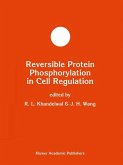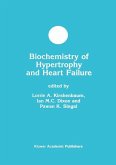This book describes the use of quantitative methods in studies in organized metabolic systems, such as mathematical modeling and Metabolic Control Analysis, for investigation of the problems of bioenergetics of the cell and also presents new experimental results. The following central problems of cellular bioenergetics are the focus of the discussions: the mechanisms of regulation of oxidative phosphorylation in cells in vivo in health and disease, the influence of fine intracellular structural organization on mitochondrial function, the intracellular networks of energy transfer and metabolic feedback signaling, the role of mitochondria in intracellular calcium cycling, and changes in mitochondrial membrane systems and cellular energetics under pathological conditions.
Systematic studies from many laboratories presented in this volume convincingly show that many mitochondrial properties, including affinities for mitochondrial creatine kinase and its molecular biology are related to its molecular physiology and functional coupling to adenine nucleotide translocase, as well as its participation, together with the adenylate kinase system, in intracellular energy transfer. The results of the studies of creatine kinase-deficient transgenic mice are summarized and analyzed using mathematical models of the compartmentalized energy transfer, thus combining two powerful new research methods. All these results, together with physiological and NMR data on the cardiac metabolic and mitochondrial responses to workload changes, confirm the concept of metabolic networks of energy transfer and feedback regulation. The papers, mostly review articles, are written by the leading experts in the field who analyze their experience of research and give insights into the future development of this increasingly important area of biological sciences.
Systematic studies from many laboratories presented in this volume convincingly show that many mitochondrial properties, including affinities for mitochondrial creatine kinase and its molecular biology are related to its molecular physiology and functional coupling to adenine nucleotide translocase, as well as its participation, together with the adenylate kinase system, in intracellular energy transfer. The results of the studies of creatine kinase-deficient transgenic mice are summarized and analyzed using mathematical models of the compartmentalized energy transfer, thus combining two powerful new research methods. All these results, together with physiological and NMR data on the cardiac metabolic and mitochondrial responses to workload changes, confirm the concept of metabolic networks of energy transfer and feedback regulation. The papers, mostly review articles, are written by the leading experts in the field who analyze their experience of research and give insights into the future development of this increasingly important area of biological sciences.








